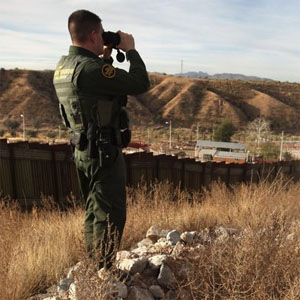Cheating death and fighting communism: that is how a fellow officer once described our job. It was meant to be funny, but as time went on it seemed all too true.
I spent more than ten years in law enforcement, all of it on the street in uniform patrol. I've been a patrol officer, instructor, sergeant and lieutenant.
Do not report crimes here. Nothing here should be considered legal advice. All opinions are my own.
(see second part of this question)
Ok. Is there a question?
What happens depends on what happened. For example, if an elderly person or someone suffering from a known medical condition is found dead inside their home, and there are no signs of criminal activity, a cursory investigation is done to document that information.
If a person is found dead in other circumstances, say with a gunshot wound or ligature marks, the situation is investigated as a homicide. The results of the investigation could lead to a ruling of wrongful death/murder, suicide, accidental homicide, justified homicide, or undetermined cause of death. Keep in mind these are all just generalities, and specific determinations vary from jurisdiction to jurisdiction.
Generally, the primary investigative agency will be the one where the body is located. There are provisions in the law that would allow another agency to handle the investigation in certain circumstances. For example, if a person was kidnapped in county A, was taken through county B, was killed in county C, and was dumped in county D, any of the jurisdictions where the crime took place (all four) could assume control of the investigation. However, this is governed by state law (which varies) and common sense almost always applies. For example, county B in the above case would not try to take control of the investigation. Keep in mind that each state has its own set of laws that may be different that what I described. Also, transporting someone across state lines during the commission of a crime can now involve two different sets of state laws plus federal law since it is an interstate crime.
Sometimes.
Help Desk Technician
Waitress
 Are you instructed to "push" certain menu items that are at risk of going bad?
Are you instructed to "push" certain menu items that are at risk of going bad?
Border Patrol Agent
 When you catch an illegal alien crossing the border, is he deported immediately?
When you catch an illegal alien crossing the border, is he deported immediately?
You can get out and help the police officer. Sitting in the car while an injured police officer is laying in a lane of traffic is unconscionable.
Working the road. Where else?
Until you've had to make decisions on when to deploy a dog in a real-life, volatile use-of-force situation, and then justify those decisions to your chain of command, an internal affairs investigation, a city attorney and (probably) a court, how exactly do you figure you will have the credibility to tell others what they need to know?
It's one thing to know the law from reading a book or attending a training class, its another to apply it appropriately in the field. It is a bit like training in the dojo vs. a street fight. Or perhaps a better analogy is the guy sitting on the couch watching a football game who has never stepped onto the field, yet thinks he knows better than the players.
Reality is a harsh, unforgiving mistress. Until you've danced with her a while, you simply don't know what you don't know.
Homicide investigators attend specialized training in investigations techniques, interviewing techniques and specialized classes on just death investigations. They also have a great deal of experience as a street cop and general investigator prior to being promoted to homicides. Once in homicides, a new investigator will be paired with a more experienced detective who will guide the on-the-job training.
-OR-
 Login with Facebook
Login with Facebook (max 20 characters - letters, numbers, and underscores only. Note that your username is private, and you have the option to choose an alias when asking questions or hosting a Q&A.)
(A valid e-mail address is required. Your e-mail will not be shared with anyone.)
(min 5 characters)
By checking this box, you acknowledge that you have read and agree to Jobstr.com’s Terms and Privacy Policy.
-OR-
 Register with Facebook
Register with Facebook(Don't worry: you'll be able to choose an alias when asking questions or hosting a Q&A.)